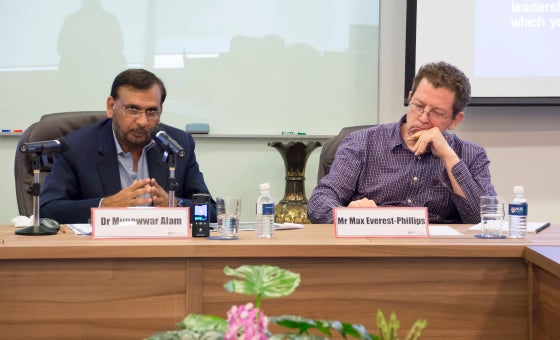
| Event Title: | ISAS-UNDP-GCPSE Joint Seminar |
| Topic: | Integrating Decentralisation with Civil Service Reforms: Did it Work? Experience from Pakistan |
| Date/Time: | 12 September 2014 | 00:00 - 20:32 |
| Venue: | ISAS Board Room |
| Speaker/s: | Dr Munawwar Alam, Adviser at the Commonwealth Local Government Forum |
| Description: | Pakistan's governance problems are enormous. Its political history is marred with intermittent military rules cumulatively equivalent to civilian rule. While it is passing through democratic transition, it faces challenges of international terrorism compounded with a plethora of developmental issues. Amidst this scenario, there are lessons to be learnt from Pakistan's sporadic attempts to reform its system of governance. For instance, all military regimes strengthened local democracy vis-?á-vis civilian governments when it is relegated to non-participatory, non-elected structure run by the civil servants. While every military government introduced its own brand of local government, the Devolution of Power Plan introduced by General Pervez Musharraf in 2001 was not simply another local government system, per se, but a major attempt to reform public service through a comprehensive package of reforms that integrated decentralisation with civil service (police and bureaucracy) ' all aimed at modernization and social change in the society. As such it was a bold initiative after 54 years to change the governance paradigm inherited from colonial administration in the un-divided India. The Devolution Plan provides a deeper understanding of core governance issues in Pakistan especially the actors of political economy of local governance including Pakistan's civil bureaucracy. One needs to understand that in the context of Pakistan, reform of the civil service and police service is crucial, as firstly they are part of the elite cadre, and more importantly with insurmountable powers are key actors in political, administrative, governance and social contexts. |


